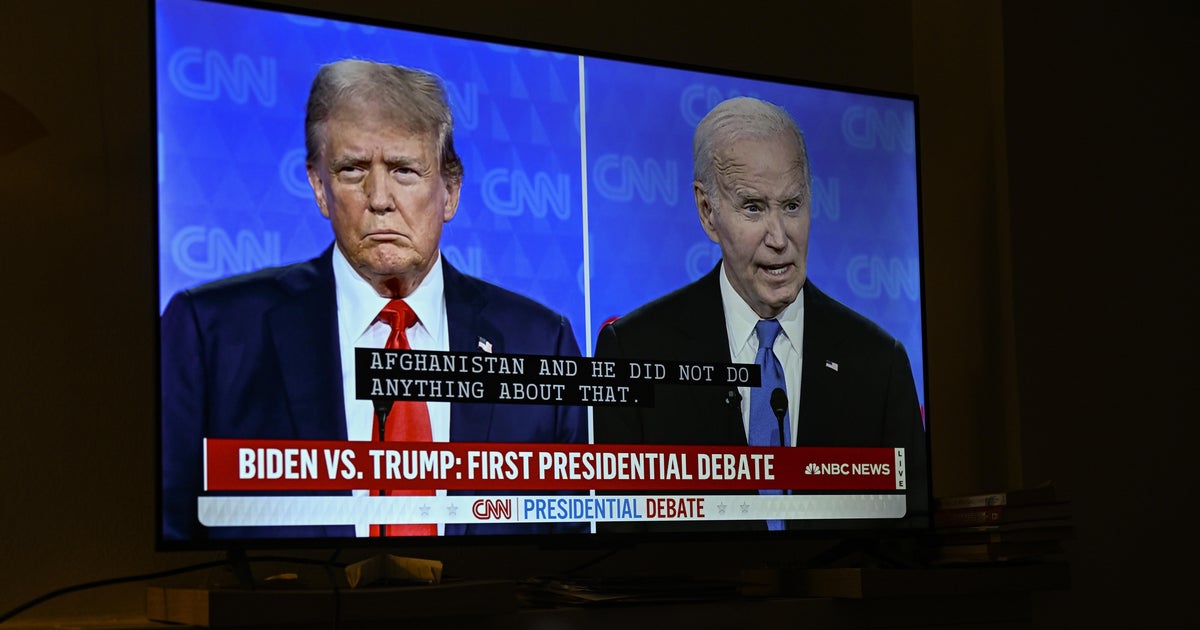North Dakota
North Dakota parents rage at school board for defying law on kids’ gender identities

A North Dakota school district is catching flak from parents who allege it continues to keep families in the dark about students’ gender identities despite Gov. Doug Burgum, R., signing a bill into law prohibiting the shady practice earlier this month.
“We will not openly out any student because of one law if we know that that’s going to cause harm to that child,” Fargo Public Schools Superintendent Dr. Rupak Gandhi announced in response to the law.
Gandhi also cited perceived conflict between state and federal law on the issue, arguing the district should continue to advocate for students who identify as transgender, according to a report from The National Desk.
Despite the district’s claim that the policy is not in place to push back against parents, some took exception at a board meeting scheduled for last Tuesday.
“The way I heard it is that you want to protect kids from their parents,” one father alleged, he proceeded to slam the policy, claiming the district is “suppressing talk.”
“Not only do you think you know my kids better than I do, you think you know every kid better than every parent does by saying you will not deal with the parents…”
“Won’t you be shocked to discover when this happens to one of your kids?” he asked those observing the discussion.

Another parent, a mother, stood at the podium and voiced her concerns about the policy as well.
“Whether or not you agree with the politics of the law or what is behind it, I really urge you all to pay attention to what we’re setting as a precedent,” she said.
“Whose kids are these? Do they belong to you as a school board? Do they belong to Fargo Public Schools or is each parent’s child ultimately the decision-maker in their family over what is allowed and what is safe for that child…?”


“There is no possible way for each teacher to know every kid as intimately as their parents do,” she continued.
The mother, continuing her talk before the school board, later added another warning for parents, saying, “Parenting 101: You teach your kids that nobody that asks you to keep a secret is safe.”
The district, like others across the nation that have elected to withhold certain information regarding students’ gender identities from parents, cites potential unsafe home environments that could stem from families’ unwillingness to accept their children’s decisions.

HB1522, in part, prohibits school boards from adopting policies requiring or prohibiting use of a student’s preferred pronouns and bars the district, boards or teachers from “withhold[ing] or conceal[ing] information about a student’s transgender status from the student’s parent or legal guardian.”
The bill also addresses several key transgender issues, including restroom policies that have dominated discussions across the US in recent years.
Fox News Digital reached out to the board members of Fargo Public Schools for comment, but did not receive an immediate response.

North Dakota
Ward County pursuit ends in crash

WARD COUNTY (KFGO) – A North Dakota State Trooper attempted to stop a pickup truck for a traffic violation on Highway 2 near mile marker 142. The pickup fled from the trooper along with Ward County deputies and initiated a pursuit.
The pickup exited Highway 2 and drove west on Ward County Road 12, then turned south onto 156th Street SW. A Ward County deputy successfully spiked the pickup just north of Ward County Road 14 on 156th Street SW. The pickup drove south across Ward County Road 14 and entered a field. Law enforcement set up a perimeter around the field. Law enforcement located the pickup approximately 1⁄2 mile south of Ward County 14 in the field where the pickup struck a large stack of round bales.
The driver, a 45-year-old man from New Town, ND was not wearing a seatbelt. He sustained serious injuries and was transported to Trinity Hospital in Minot. The driver was charged with driving under suspension, fleeing a peace officer, and aggravated reckless driving.
The passenger, a 45-year-old woman from Stanley, ND was not wearing a seatbelt. The woman sustained serious injuries and was transported to Trinity Hospital in Minot. Names will be released at a later date.
This incident remains under investigation by the North Dakota Highway Patrol.
North Dakota
A chance to bring term limits back to life – The Boston Globe

Of course, there is a surefire way to guarantee more turnover in Congress: term limits. Imposing a hard cap on how long senators and representatives can retain their seats wouldn’t prevent scoundrels, zealots, and incompetents from getting elected. It would keep them from becoming entrenched in power. It would make congressional elections more competitive, more responsive, and more meaningful. It would encourage more good and talented people to run for office. And it would decrease the influence of lobbyists, whose clout depends on ties to long-time incumbents.
There is little about politics today on which Democratic and Republican voters agree, but the desirability of congressional term limits has long been an exception.
The Pew Research Center last fall measured public support for a number of proposed reforms, including automatic voter registration, expanding the Supreme Court, and requiring a photo ID to vote. By far the most popular proposal was a limit on the number of terms members of Congress can serve. An overwhelming 87 percent of respondents favored the idea. Similarly, researchers at the University of Maryland’s School of Public Policy, who have studied public attitudes on this issue since 2017, report that very large majorities of Republicans, Democrats, and independents consistently back term limits.
If congressional term limits command such widespread bipartisan regard, why don’t they exist?
Actually, they used to. A wave of citizen activism in the early 1990s led 23 states, comprising more than 40 percent of all the seats in Congress, to enact laws limiting the terms of senators and representatives. But in 1995, a sharply divided Supreme Court ruled in US Term Limits v. Thornton that neither the states nor Congress may add to the conditions for serving in Congress. In a 5-4 decision, the court ruled that inasmuch as the Constitution did not set a maximum number of terms for senators and representatives, states cannot do so either.
The dissent, written by Justice Clarence Thomas, was strong.
“Nothing in the Constitution deprives the people of each State of the power to prescribe eligibility requirements for the candidates who seek to represent them in Congress,” he observed. “The Constitution is simply silent on this question. And where the Constitution is silent, it raises no bar to action by the States or the people.”
At the time, the court’s ruling had the effect of nullifying congressional term limits in all the states that had adopted them. But nearly 30 years later, might the issue get a second look?
Maybe.
On June 11, North Dakota voters handily approved an amendment to the state constitution imposing an age limit on candidates for Congress. The new measure disqualifies anyone from running for the House or Senate if they would turn 81 before the term ends. Under the 1995 decision, the North Dakota law is unconstitutional, since it imposes an eligibility requirement to serve in Congress that isn’t in the Constitution. So it is widely assumed that the law will be challenged in federal court. Federal judges are bound by Supreme Court precedent, so the law will presumably be struck down by the district court, and that decision will be affirmed by the court of appeals.
But that would set up an appeal to the Supreme Court, providing an opportunity to revisit the issue — and perhaps overturn US Term Limits v. Thornton. Of the justices who were on the court in 1995, the only one still serving, as it happens, is Thomas. Another of the current justices, Neil Gorsuch, co-authored a 1991 law review article defending the constitutionality of term limits.
It might seem odd that a challenge to North Dakota’s congressional age limits law could conceivably open the door to undoing a Supreme Court precedent dealing with term limits. But the underlying issue is the same in both cases: whether the people in each state have the right to set the rules for gaining access to their ballot and representing them in Congress.
There is good reason for the public’s unflagging support for limiting congressional terms. Because the advantages of incumbency are so powerful, it has become incredibly difficult to dislodge a sitting member of Congress. US presidents, most governors, and mayors of many of the country’s largest cities are term-limited. Most Americans, across the political spectrum, have steadfastly believed senators and representatives should be too. Nearly 30 years ago the Supreme Court took the power to make that decision away from the people. Soon it may have a chance to restore it.
Jeff Jacoby can be reached at jeff.jacoby@globe.com. Follow him on X @jeff_jacoby. To subscribe to Arguable, his weekly newsletter, visit globe.com/arguable.
North Dakota
Operation Dry Water 2024 focuses on Fourth of July week

BISMARCK, N.D. (KFYR) – North Dakota Game and Fish Department game wardens will once again participate in a national campaign called Operation Dry Water.
“Operation Dry Water is a national campaign focusing on the awareness and enforcement of boating under the influence, both alcohol and drug use,” said Jackie Lundstrom, NDGF game warden supervisor.
This year’s campaign is focused on the Fourth of July week, July 4-6.
“That time frame has historically been picked because it is a national holiday, and it’s a time frame when just about everybody gets together for some sort of family gathering or friends and family outing and watching fireworks,” said Lundstrom.
There are many partners who participate in Operation Dry Water on a local and national level.
“Across the country, all agencies involved with any type of water enforcement. That could be a state agency, it could be sheriff’s departments, local police departments. We have states and territories all over the country that are involved with this project. And it’s also in correlation with the U.S. Coast Guard as well,” said Lundstrom.
What can boaters expect when stopped by game wardens or other participating agencies during Operation Dry Water?
“If you are stopped, whether it was for an initial violation or a safety check, our officers will go through those items that are required, and then they’ll also discuss whether or not there’s a sober operator on board for the day,” said Lundstrom.
The Fourth of July is a holiday when family and friends typically gather and have a great time on our state’s lakes and rivers, but at the end of the day, everyone has the same end goal.
“Our ultimate goal when we’re outdoors and out on the water, especially this holiday weekend, we want to make sure that everyone comes home safe and has a good time on the water,” said Lundstrom.
Most of the fatal boating accidents in North Dakota are alcohol-related.
Copyright 2024 KFYR. All rights reserved.
-

 News1 week ago
News1 week agoTracking a Single Day at the National Domestic Violence Hotline
-

 World7 days ago
World7 days agoIsrael accepts bilateral meeting with EU, but with conditions
-

 World1 week ago
World1 week agoIs Israel’s Smotrich fulfilling his dream of annexing the West Bank?
-

 News1 week ago
News1 week agoSupreme Court upholds law barring domestic abusers from owning guns in major Second Amendment ruling | CNN Politics
-

 Politics1 week ago
Politics1 week agoSupreme Court upholds federal gun ban for those under domestic violence restraining orders
-

 Politics1 week ago
Politics1 week agoTrump classified docs judge to weigh alleged 'unlawful' appointment of Special Counsel Jack Smith
-

 World1 week ago
World1 week agoNew Caledonia independence activists sent to France for detention
-

 News1 week ago
News1 week agoA Florida family is suing NASA after a piece of space debris crashed through their home
















